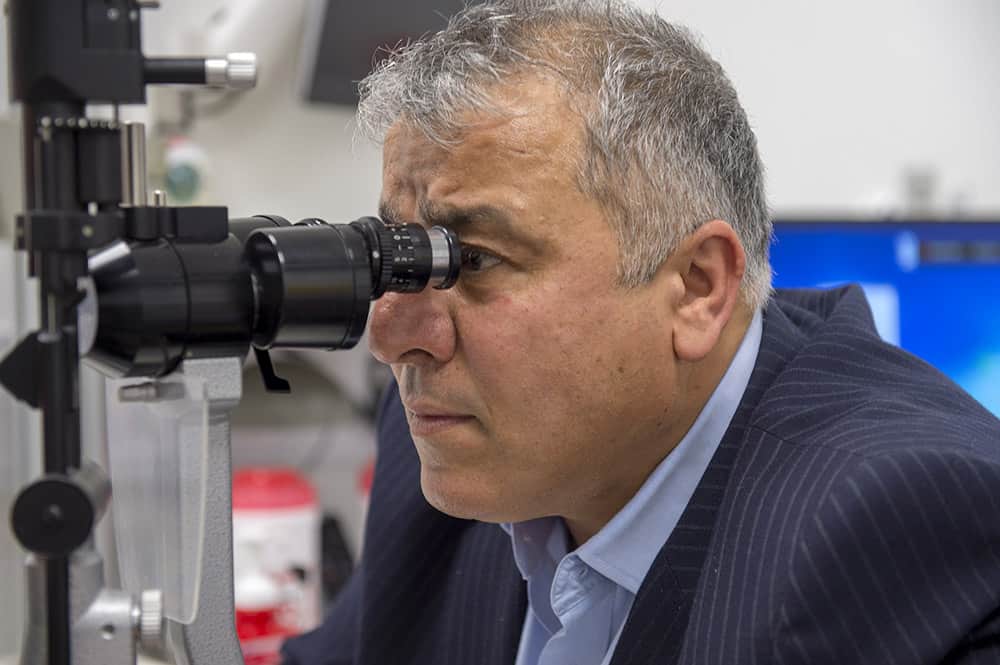Over £300,000 awarded for ‘revolutionary’ eye test to detect early signs of Alzheimer’s

The Alzheimer’s Drug Discovery Foundation (ADDF) will give around £329,000 to the Centre for Eye Research Australia (CERA) to create a simple, pioneering and non-intrusive eye test to detect early signs of Alzheimer’s disease.
Funding for the innovative research comes as part of ADDF’s Diagnostics Accelerator program and CERA is one of the first four projects worldwide to be announced for the inaugural round of funding.
The ADDF’s Diagnostics Accelerator is a partnership of funders, including ADDF Co-Founder Leonard Lauder, Bill Gates, Jeff and MacKenzie Bezos, the Dolby family, and the Charles and Helen Schwab Foundation, to develop novel biomarkers and diagnostics for the early detection of Alzheimer’s disease and related dementias.
The funding will enable individuals to participate in a world-first trial of eye scans, based on imaging technology similar to that used in NASA satellites.
Deposition of a protein, known as amyloid beta, in the brain over many years is a characteristic of Alzheimer’s disease and recent research indicates that it also accumulates in the retina at the back of the eye, says CERA.
Using specialised colour imaging, cameras developed by the team at CERA will measure the amyloid beta in the retina years before symptoms of Alzheimer’s disease appear.
The technology was developed by Associate Professor Peter van Wijngaarden and Dr Xavier Hadoux from CERA and the University of Melbourne, respectively.
Professor van Wijngaarden said the approach has the potential to revolutionise the diagnosis of Alzheimer’s disease.
It could also accelerate research efforts to delay, prevent, or even cure, the disease, as scientists take a more targeted and less invasive approach to testing new drugs and treatments for those most at risk
“We hope to develop a simple, non-invasive test that can identify people at risk of the disease and open the way to new treatments and hopefully a cure,’’ he said.
“Current tests for Alzheimer’s disease are expensive and invasive. Not only are they out of the financial reach of most health care systems, their cost and limited availability make the testing of new treatments much more difficult, slowing down the pace of discovery.’’
The eye test will be offered to volunteers in the Healthy Brain Project, an innovative study of healthy middle-aged adults with a family history of Alzheimer’s disease that aims to identify risk factors.
The research brings leading eye researchers together with Healthy Brain Project investigators, neuropsychologist Dr Yen Ying Lim, of the Florey Institute of Neuroscience and Mental Health, and neurologist Dr Nawaf Yassi, of the Royal Melbourne Hospital.
“Ultimately we would hope this technology will be used to identify people at high risk of Alzheimer’s disease who may need to go on to the next wave of treatments so that they may never develop the disease,’’ Professor van Wijngaarden concluded.

